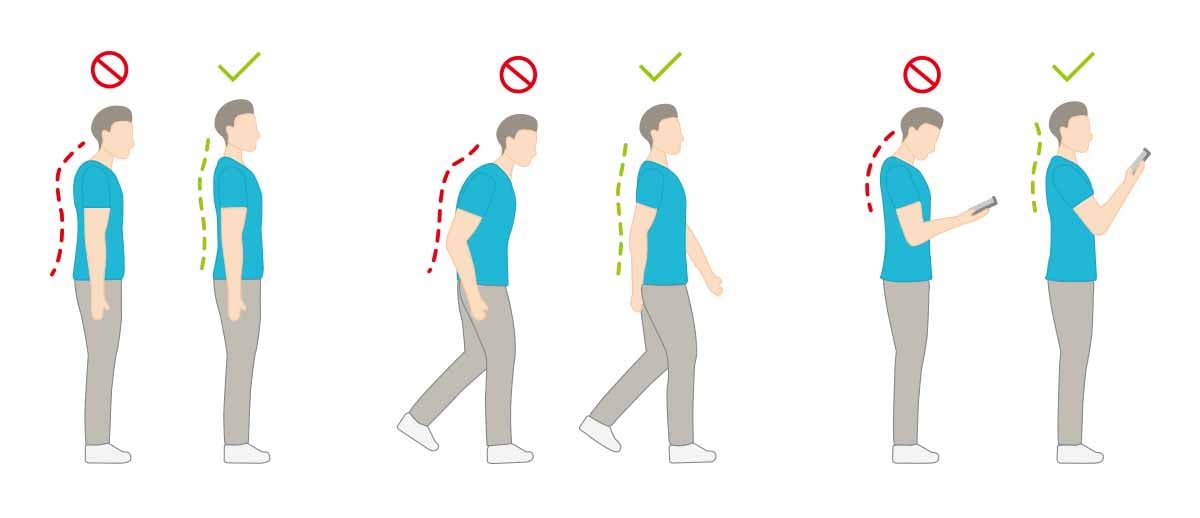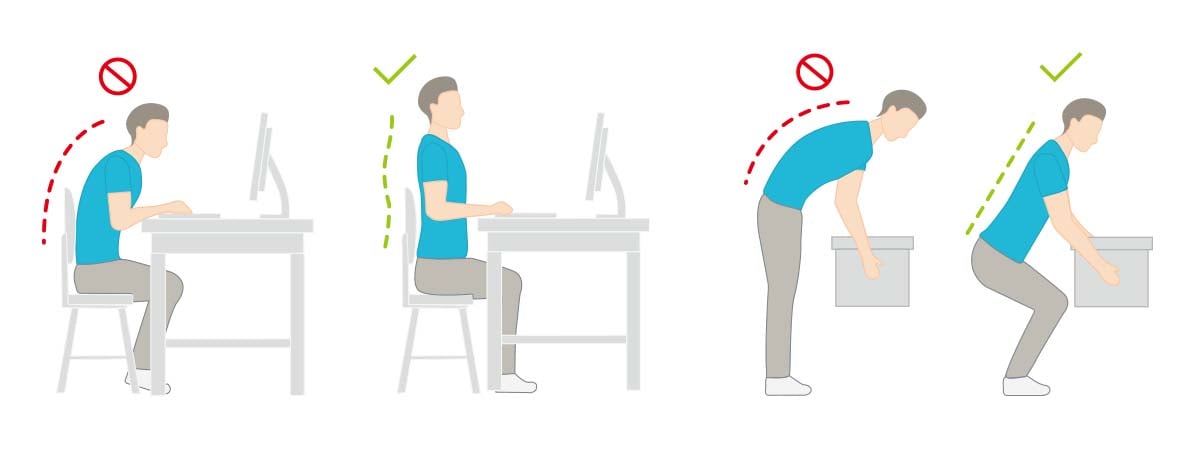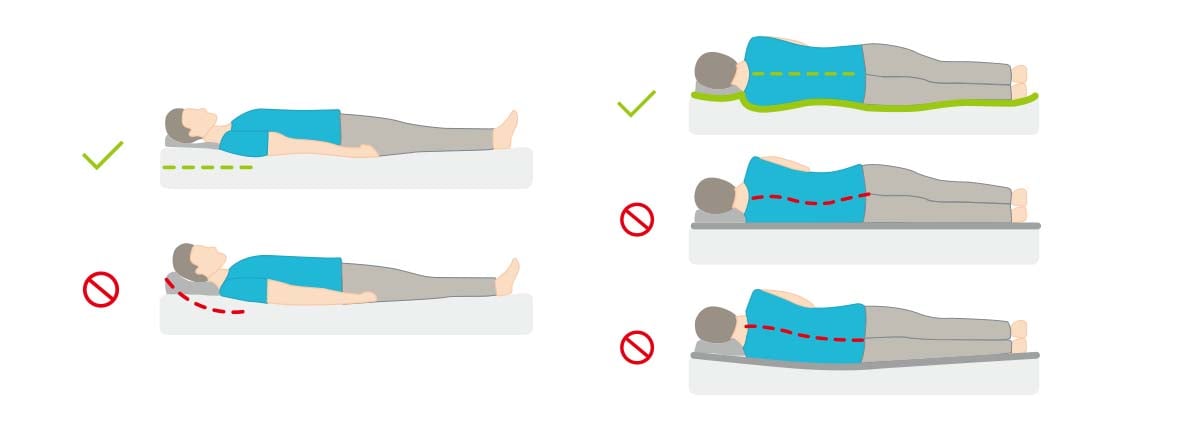With the arrival of winter, your cold hands and feet might not be the result of nervousness. You will mostly see people around you rubbing their hands to keep them warm, but no matter how many pairs of socks you might wear, it just wouldn't work.
It turns out that 7.5% of more than 7 billion humans amount to a lot of people suffering from back pain and stiffness. Given the scale and intensity of the problem, we pay very little attention to it. Many people simply live with a stiff back as long as they can. Others find solace in temporary solutions. In truth, people can put in the efforts to make their backs better.
Today we will go through everything you need to know about back pain and stiffness. We will discuss the causes, the symptoms, and what you can do about it. Let’s find out more about stiffness and pain in the back.
Causes of back stiffness
There can be many reasons behind a stiff back. Broadly, we can categorise them as specific and non-specific. Specific causes refer to medical conditions that lead to back pain. It can be slipped disk, sciatica, spondylitis, or some other medical condition.
Non-specific reasons are a consequence of how we live in our everyday lives. That includes your posture, how you sleep, how long you sit, and so on.
Here are the most common non-specific reasons behind a stiff back:
- Poor posture: A bad posture can cause many problems in your life. A bad posture is usually characterised by a stooping stance, drooped shoulders, bent neck, and an overall forward bend in the spine. It is very easy to know if you have a bad posture. You can identify the stoop in front of a mirror or in pictures. As humans, we already know whether we have good posture or not.
- Muscle injuries: Muscle injuries can occur either from working out incorrectly or lifting heavy items. When you put too much pressure on your back, it may increase your risk of muscle strains. It leads to both pain and stiffness. In the case of muscle injuries, the pain usually begins abruptly and increases sharply.
- Poor sleep posture; How we sleep also plays a key role in how good our backs are. If you do not sleep in an relaxed position, it may lead to severe pain and stiffness in the back. The effects of poor sleep posture show up in two ways. If you have slept in a particularly bad position, you might wake up with pain and stiffness. On the other hand, constantly sleeping in a bad position can lead to chronic back pain and stiffness.
- Tight muscles: If you do not move around and live a very sedentary lifestyle, your muscles get used to not stretching, contracting, and moving. Over time, it can make your muscles very stiff, especially in the hamstring and hips. Stiff muscles obviously lead to a stiff back, and make back pain much worse.
Here are some medical conditions responsible for back pain and stiffness:
- Slipped disk - A slipped, or prolapsed, disk does not only cause back pain, but can also possibly lead to numbness in the lower back and leg.
- Sciatica - Sciatica refers to a medical condition where a connecting nerve in your back is damaged. It leads to bad posture, back pain, and stiffness.
- Spondylolisthesis - Spondylolisthesis is a serious medical condition where a bone in your spine is no longer in its correct position. It can lead to a lot of pain and might require immediate medical attention.
- Ankylosing spondylitis - This condition refers to swelling in your back joints. It is a very common problem in people of all ages. It is both a cause and a consequence of bad posture among other factors.
Now that we have looked at the common reasons for back pain, let’s find out more about a few symptoms you need to be mindful of.
Symptoms of back stiffness you should look out for
Back stiffness is a symptom. When you experience a loss of flexibility in your spine and difficulty doing tasks that require mobility, it indicates a deeper problem in your spine. While pain is a symptom, we often overlook it. That is also because pain is simply the body’s reaction to some external problem. However, not all symptoms of back stiffness are the same. Some are much more concerning than others.
- While pain is the first thing you would notice, you should also look out for numbness. If you feel that your back is getting numb occasionally, it might indicate something worse than a simple stiff back due to bad posture. Some medical conditions like those we talked about can lead to numbness in your back. It is one of the most important symptoms to look for.
- Often nonspecific back stiffness gets better if you take rest and do not put any additional stress on your back. However, that will not be the case when there is something serious going on with your back. If your pain and stiffness do not get any better with rest, it is time to go to your physician.
- Back pain can sometimes extend to other parts of the body, especially the legs. If you feel the pain or numbness extending to your upper legs, knees, or below that, it indicates a deeper problem with your spine.
- The final symptom that you should be careful about is weight loss and/or fever. If your back stiffness and pain are leading to unexpected weight loss, fever, or either of them, it is a sign of an underlying issue.
If you experience any of these symptoms, you should see your physician at the earliest. The longer you neglect these symptoms, the more severe your condition would get. Remember that many medical conditions can also develop because of poor lifestyle choices and habits. However, taking care of it from an early stage can prevent a lot of future pain and discomfort.
Risks associated with a stiff back
We often underestimate the risks associated with a stiff back. In the previous segment, we highlighted some of the symptoms that you cannot afford to overlook. If you do not treat these conditions, they can lead to huge problems. You might even end up bedridden. It is not uncommon for people with a stiff back to develop sciatica or spondylitis. If you leave the condition untreated for long enough, there are severe repercussions to stiffness in the back.
Over time, the pain in your back will extend to your legs and knees. Once you have both knee and back pain, your life will become very difficult. Many people suffer from such excruciating pain every day. They often resort to steroids and painkillers to keep the pain in check. However, prolonged use of these drugs comes with their own set of problems.
If you are a working professional in your late twenties or early thirties, stiffness and pain in the back may become a big impediment to professional and career growth. As a result of the constant pain, your productivity will decrease. In turn, you will not be able to work for long hours without going through pain. The ramifications have a chance of affecting every aspect of your life, be it personal or professional.
Some of the most underestimated repercussions of back stiffness include weight loss and sudden fevers. In severe cases, back pain can also lead to irregular bowel movements. There are far too many disregardable effects of not taking care of your back at the right time.
Now that you know how to identify back stiffness and what its effects can be, it is time to understand what you can do about it. With a few good habits and practices, anyone can beat stiffness in the back and back pain.
Self-care for stiff back
There are many things you can do for your back simply from your home. However, we recommend that you see a professional doctor, therapist, or certified professional to analyze the exercise and stretching program that is appropriate for you to avoid negative effects. If you notice anything isn't quite right after exercising or stretching for a while, seek professional help as soon as possible; after all, everyone's physical state is different. .
- Working out: Exercising and working out is the best thing you can do for your body including your back. The number one reason young people develop stiffness in their backs is not moving enough throughout the day. In our modern desk jobs, we spend more than half of our working lives sitting. Over a span of many years, it has severe repercussions. However, when you work out, you can alter many of the ill effects of sitting for too long. Even simple stretches and basic moves like squats and push-ups can go a long way to make your back better. If you don’t know where to start, simply go for a run and focus on keeping your back straight all along.
- Improve your posture:



- You know good posture when you see one. Similarly, you know whether your posture is good or bad. If you have a bad posture, start working on it with the help of extensions and support if needed. It is essential to have a good posture for a long and healthy life. For seated tasks, ensure that your setup is ergonomic and does not put excess pressure on your spine. Use a quality chair and table that are adjustable. Also, make it practice to take breaks and walk for at least 2 minutes for every 30 minutes of sitting.
- Use heat therapy: Heat is a great natural way of relaxing muscles and promoting blood movement. With the help of a comfortable heating cushion or heating pad, you can apply heat to your back. With the combination of stretches and exercise, it may also help loosen up tight muscles and lower the intensity of back pain. It is recommended that you use it twice a day and not more than 30 minutes per time. We hope you find the suggestions useful and see noticeable benefits soon.
- Maintain a healthy weight: Based on reliable recourse, one with obesity is having higher risk of suffering from back stiffness and pain. The first thing you need to do is come down to a healthy BMI (body mass index). That does not mean you have to hit the gym every day and get ripped. All you need to do is lose enough weight to make it easier for your bones and muscles. Obese individuals also tend to suffer from more pain than those with a healthy BMI.
- Sleep well: How much and how well you sleep matters equally to prevent back stiffness. Ensure that your sleeping environment is cozy and comfortable. Doing so will make you less likely to move around in your sleep and end up in a bad sleeping posture. Get a quality mattress, great below, a temperature-controlled blanket, eyeshades, and everything else you need to have a great night’s sleep. If you sleep with a good posture and get enough sleep every night, you will be much less likely to suffer from chronic back pain.
- Alternative treatments: If you want to go the alternate route, you can go with yoga and pilates. Both these methods have proven benefits for back stiffness and pain. They also improve your muscle flexibility which further prevents stiffness in the back.
Conclusion
Physical pain causes us numerous problems in our daily lives. These effects might be both large and tiny. We hope that everyone will be able to find the best method to coexist with it. If your discomfort is affecting your mood, job, or life, I hope some of the recommendations in this article can help. You can begin by simply modifying your sitting, standing, and sleeping postures, and of course, you can try our products. Wellcare's purpose is to assist others, and make your life easier. Eliminate your body aches today with our comprehensive suite of products including electric blankets, heating cushions, and more. Enter 2022 pain-free and experience a more rejuvenated life with our practical tips and advice.


.png?width=512&name=united-kingdom%20(1).png)



